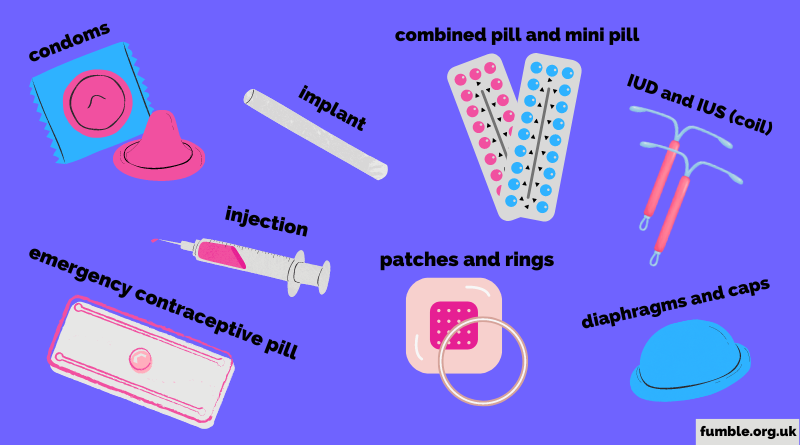Dr Yaz’s expert advice on keeping sexually well in the UK
Whether your bedroom antics are a source of much despair, or your bed-hopping leads you to your soulmate, your sexual health is important. Here are our top things you need to know about looking after your sexual health!
Who can provide sexual health services and advice?
Sexual health services are available from a whole host of places.
First up is sexual heath clinics – these specifically provide sexual health care, and can be NHS-funded or run by charities, like Brook. Brook has a really handy tool to help you easily find your closest sexual health service. Most will offer support with contraception, including emergency contraception, condoms, pregnancy testing, testing for sexually transmitted infections (STIs), and more.
Your GP is also an option. Whether you’re studying, working or somewhere in between, it’s really important to register with a local practice.
If you’re a student at university, your student union will also be on hand to provide services such as free condoms and pregnancy tests, as well as pointing you in the direction of local clinics.
Testing
Everyone who is sexually active should have an STI check-up (at least) once a year. This usually involves swabs or urine samples, as well as blood tests for those who are more at risk of blood-borne infections. It’s healthy and responsible practice to get an ‘MOT’ (full check up) and test for STIs every time you change partners, or engage in unprotected sex with a new person.
Contraception
Condoms aren’t the only pregnancy prevention option on offer. There are lots of methods of contraception. Head to your GP or local sexual health clinic – they will be able to tell you more about coils, implants and the good ol’ fashioned pill. Don’t forget though: barrier methods (like condoms) are the only way of avoiding those pesky STIs.

Contact tracing
It might have been the funny discharge, the burning when you pee, or just your annual check-up. You tested positive for an STI, and you’re being treated. No problem, right? Except that, as a polite and courteous sexual partner, you’re now going to have to go back to your recent ex-lovers and let them know.
This can be a bit daunting, but your local sexual health clinic will be able to offer contact tracing, meaning they let people know if you don’t feel comfortable. You let them know who to call and they’ll let them know in a “relatively” anonymous manner.
Pregnancy
Creating life is a beautiful thing but for some people, it comes completely out of the blue. This can be a difficult time for all involved, so don’t forget that sexual health clinics aren’t just for condoms and STI tests. They can also provide pregnancy tests, and support you during an unplanned pregnancy. It’s best to access help as soon as you suspect you might be pregnant. Your GP or clinic can offer advice on your next steps, regardless of whether you choose to continue your pregnancy or not.
Also, remember that (although less effective the longer you wait) you can take emergency contraception (known as the morning-after pill) up to 5 days after unprotected sex. It is available for free at sexual health clinics, and you can purchase it at pharmacies.
Sexual problems
Sexual health isn’t just about avoiding STIs and pregnancy, but also about enjoyable, healthy sexual relationships. Problems with sexuality or sexual function aren’t often talked about, but services are still available to help you.
The charity Relate offer couples and single person counselling on a whole host of topics and offer specific young people’s services across the country. If you’re studying at university, there’s usually a LGBTQ+ society which may be able to help if you’re questioning or feeling worried about your sexuality and/or gender identity. There are also lots of LGBTQ+ services for young people across the UK.
Confidentiality
Confidentiality is an absolute must throughout the NHS. Even so, not all people want their sexual health documented in their notes. Accessing sexual health clinics is a way of keeping these separate, as they won’t contact your GP surgery unless you consent or it is absolutely necessary.
Consent
Consent is crucial for any kind of sexual intimacy, whether that’s kissing, touching, penetrative sex or even sending sexual photos/videos. But it’s also the bare minimum of what we should be doing with it comes to sex or intimacy with someone else.
Whether you’re in a long-term relationship with someone, or it’s a more casual hook-up, you should be trying your best to make the other person feel as comfortable as possible. We can do this by:
💚 Giving them the opportunity to say ‘no’
💚 Taking the time to understand their body language
💚 Checking in to make sure they’re enjoying what’s happening. For example, “How’s this? Slower?” or “Does this feel okay?”
💚 Listening to them: there are lots of ways we communicate ‘no’ or ‘stop’ indirectly
The more thought that goes into communication, building trust and considering each other’s feelings, the better the sex will be, and the more fun you’ll have together. Ultimately, sexual consent is about care and checking in.
You may have taken part in consent workshops or been offered sessions at school, college or university. These can be enlightening for all involved and are highly recommended. You may think you know all you need to, but open and frank discussion will reduce stigma and foster safer environments.
Sexual abuse and assault
No one should suffer sexual assault, abuse or violence. This is never okay, regardless of who you are. If you’ve experienced any form of sexual violence or harassment, it’s really important that you have the space to open up about what’s happened, and there are places you can reach out to for help and support. Please don’t try to manage alone. We also have guidance for anyone who’s supporting a friend through sexual violence.
Other support
- Fumble Talks: Sexual health
- C-Card – Free condoms
- The Family Planning Association
- Brook
- Terrence Higgins Trust
- NHS
Read more
Last Reviewed 23 August 2023
Image Credit: Klaus Nielsen via Pexels



